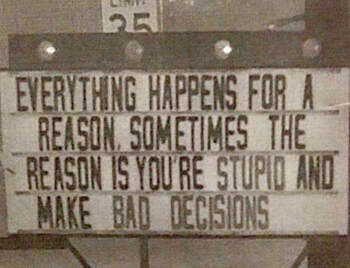 Frequent first-time visitors to La Carpio see rusting shacks crowned with satellite dishes, and they say, “Aha! They’re poor because they make bad decisions!” A comment such as this was made recently during a six-week course on poverty alleviation that we taught at our church here in San Jose, Costa Rica. A young man said that there isn’t really systemic poverty in Costa Rica. The poor are in Honduras, or Nicaragua or Haiti, he said, but the people in La Carpio really aren’t that poor. If they lack resources, it’s because they lack discipline or work ethic, he suggested, not opportunity. The Poverty Cure video series we used as a teaching tool for this course suggests that the best way forward is through pursuing entrepreneurial solutions to poverty rooted in the creative capacity of the human person made in the image of God. The makers of the series challenge us to see marginalized communities not as filthy holes, or wastelands, but rather as regions teeming with untapped creative potential. It teaches that people are the solutions, not the problems. Class 5 of the series is titled, “The Power of the Gospel” and it focuses on the necessity of not only helping people flourish economically, but also spiritually. If we help people attain wealth, but don’t address their character and identity, we’re not doing justice to them, their families, or their communities. One of the discussion questions we pose during class is, “How can charitable work promote spiritual transformation without falling into the false and destructive idea that the poor are necessarily to blame for their poverty?” The first and more vociferous responses are usually, “But … they ARE to blame! They DO make bad decisions!” Psychologists refer to this knee-jerk reaction as the “fundamental attribution error.” This is a concept that suggests we have a natural tendency to see the behavior of others as being determined by their character, while we excuse our own behavior according to our circumstances. I find myself in a tough financial situation because of a bad break, but others get into difficult situations because of their own fault. We always tend to give ourselves more grace than others. The concept is termed an error, implying that our judgment might just be incorrect. The truth is, poor people do make poor decisions—at least at the same rate as those who are wealthy. However, the wealthy person has the financial resources, and sufficient relational connections, to recover more rapidly from poor decision-making. But beyond that, poor decisions are not necessarily what made those people poor to begin with. Poor decisions might be an unhelpful response to their poverty, or an escape, but the reality is that there is multi-generational, systemic poverty. And that means that some people are poor NOT because of their own decisions, but what they were born into and the perpetuating nature of that system, which keeps them from opportunities to improve their situation. One of the poverty alleviation experts interviewed in the series uses a great analogy to describe people raised in poverty. He says they are bonsai people. He says bonsai people don’t fully develop or grow because they aren’t planted in sufficient soil to contribute to their growth and development. This is a useful metaphor because it encourages us to consider the circumstances of those living in poverty and what might limit their ability to overcome poverty. It’s here that we begin to discuss what poverty really is—a lack of life-giving relationships. There are many faces of poverty beyond the physical, including:
We are all born into abject spiritual poverty. It’s only in the light of God’s grace that we are able to see our own wretchedness. And it’s only in the light of God’s grace that we’re able to see our inestimable worth in His eyes. So, the answer to the question we seek about how, in light of the gospel, we can avoid the trap of blaming the poor for their poverty, is to remind ourselves of our own poverty. We must necessarily show others the same grace we always naturally give ourselves (and more importantly, that we’ve received from Him). And that will result in compassion instead of judgment. Isn’t that a healthier place to start? “It sucks to be poor, and it sucks to feel that you somehow deserve to be poor. You start believing you’re poor because you’re stupid and ugly. And then you start believing that you’re stupid and ugly because you’re Indian. And because you’re Indian, you start believing you’re destined to be poor. It’s an ugly circle and there’s nothing you can do about it. Poverty doesn’t give you strength or teach you lessons about perseverance. No, poverty only teaches you how to be poor.” — The Absolutely True Diary of a Part-Time Indian, by Sherman Alexie
1 Comment
Andy Gordley
3/25/2021 04:22:33 pm
Thanks for sharing. It is easy to jump to conclusions when one briefly looks in from the outside.
Reply
Your comment will be posted after it is approved.
Leave a Reply. |
Quote of the month""At the margins is the only place the Church will have credibility." Archives
November 2022
Categories |
outreach |
partners |
|

 RSS Feed
RSS Feed
